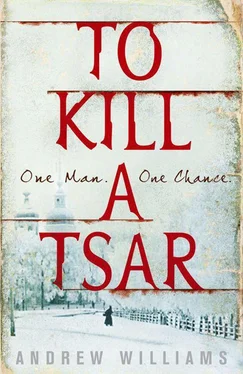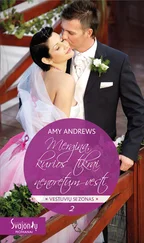The door opened before the correspondent could knock.
‘It’s good exercise,’ Hadfield observed in Russian, with a small smile of welcome.
The correspondent pushed past his friend with a stony face and began to shrug his coat from his shoulders.
‘There’s some tea,’ said Hadfield, closing the door behind him.
‘No thank you,’ Dobson replied hoarsely, and he pulled a chair from the small wooden table and sat down.
‘Did you hear anything from your police contact?’
‘Please, a moment to collect myself.’
Hadfield poured some more tea and sat beside him, his hands cupped around the glass, his foot tapping on the wooden floor in an involuntary display of impatience. Three months had slipped by since his return to St Petersburg and he had still not traced his baby daughter. His former assistant at the hospital — Anton Pavel — had found rooms for him and had readily agreed to help in any way he was able. They had made discreet inquiries at almost all the city’s hospitals and charitable institutions but they had not discovered any firm intelligence as to her whereabouts. The little girl — Hadfield did not know her name — might have been placed with a family or spirited away to an orphanage in the provinces. To be certain, they needed access to her mother’s police file. The three of them had discussed the matter at length and it had been agreed at last that Dobson would risk approaching his source in the new Okhrana.
‘Your baby’s name is Sophia.’ Dobson paused to give weight to this revelation, a small smile playing on his lips. ‘But no, I have not found her.’
Hadfield looked away for a moment. ‘It means so much to be able to call her by her name.’
Dobson waited until he had collected himself sufficiently to continue, then said: ‘I’ve arranged to see your old friend Barclay tomorrow. He’s rising up the table of ranks — a colonel now. Not as clever as Dobrshinsky but a little more ruthless, which is, no doubt, why he’s still useful.’
‘But if you haven’t spoken to him yet, how do you know my daughter’s name?’
‘Because I’ve spoken to her mother.’
‘You’ve spoken to Anna? She’s here in the city?’ This time Hadfield could not contain himself and he jumped up, his chair crashing to the floor, his right hand pressed to his forehead, the room too small to pace. He stood above Dobson with an expression of bewilderment then hope on his face. ‘She escaped?’
‘Evidently. For God’s sake sit down and I’ll tell you the little I know.’
He told Hadfield of Anna’s visit the evening before, and that she was searching for their daughter with the help of friends — ‘the few still at liberty’ — but he did not mention her note.
‘I sense she is still committed to the revolution,’ he said disparagingly. ‘I know you’re infatuated with her — and she is good-looking enough, I grant you — but she doesn’t seem to have—’
‘To have? You may as well say it.’
‘She hasn’t changed, Frederick. She’s a dangerous fanatic.’
Hadfield shook his head crossly. ‘She is fighting for the freedom of the people. You’ve said yourself that things are even worse here…’
‘Since her friends murdered the last tsar, yes.’
‘It will be a long struggle.’
‘Don’t be their mouthpiece,’ Dobson snapped.
‘I’m not.’
They glared at each other for a few seconds, until Hadfield leant forward to touch his friend’s arm: ‘You’ve done so much. I’m grateful.’
The correspondent’s face softened a little. ‘As your friend, I must tell you I think she is only capable of seeing her life and the world one way. You should have seen the certainty in her face. I tell you, Frederick, her mind runs on rails.’
‘I love her,’ said Hadfield simply. ‘Please do not speak ill of her.’ He rose again and walked over to the window. In the silence they could hear the sound of water slopping on the stone stairs and the grating of a mop bucket as the maid pushed it with her foot. And in the street below, a young man — a clerk perhaps — was moving out of the house opposite, loading the few sticks of furniture he possessed on to a cart.
‘Did she speak of me?’ Hadfield asked quietly.
‘She gave me a note for you.’ Dobson drew it from the breast pocket of his jacket. ‘Here.’
Hadfield stared at his name written in her untidy hand on the envelope and he felt a surge of love and hope. He was in no hurry to open it for he knew Anna well enough to be sure her message would be short and to the point, even after a year and a half apart. But his friend was watching him and waiting, so he slit the envelope open with a table knife.
8.00 p.m. At the church.
Terse even by her standards, he thought, and offered the note to Dobson, who glanced at it then handed it back without a word.
When the correspondent had gone, Hadfield sat at the window waiting for the blue-grey hours to slip away. It snowed for a time in the afternoon, falling straight and wet, the temperature hovering just below freezing until dusk, when a frost began to form between the inner and outer panes. His thoughts were in constant motion, swirling as if carried on a wind to the future and back to the past then lifted up once again. Always her, always Anna and their daughter. He imagined them in his own reflection and in his breath on the glass, until his gaze slipped beyond to the darkness of the city. She had suffered so much. The humiliation of the birth at the prison, the distress of separation, trial and sentence — a lifetime of penal servitude in the east. Her comrades in Switzerland had told him the little they knew from correspondence and, desperate always for word of her, he had scoured the papers every day for news, even when the little there was brought only pain and guilt. Baby Sophia was a year old already. At dark moments he wondered if he would ever find her and he was frightened that if he lost her he would lose Anna too.
At seven o’clock the maid brought him some bread and broth from the kitchen but he had no appetite. A short time later he left the house, racing down the stairs, eager to be in the freezing air and on the move. Walking fast, almost running, slipping on the icy pavements, he made his way to the Obvodny Canal, factory workers trudging home with their heads bent against the first flurries of another snowfall. The dead hand of winter creeping across the city until the corruption of its canals and streets and palaces was locked beneath a glittering white surface. But what did he care? It was a long way to the church and he must not be late. Run. Run faster. Run. And as he ran, he thought of the little room with its single mattress, of her finger pressed gently to his lips, of the silence and the stillness, the infinite stillness. He would help her escape from the shadow of the last years. Together. Together with Sophia. He held this feeling like a prayer, allowing it to fill his mind and body as he ran, careless of the snow and the curious glances he was drawing from passers-by. On past the Alexander Nevsky Monastery and on to the embankment of the Neva. ‘Hey, watch out there!’ a cabbie shouted from his box as he weaved his way across the street to the riverside walk.
The scaffolding had gone and rising complete was the Church of St Boris and St Gleb. The Romanesque arch at the west front in pristine brick and stone and, crowning all, a lantern dome with figures of the apostles in its niches. The church built to commemorate the tsar’s miraculous escape from an assassin’s bullet had been finished at last, and yet empty and lifeless inside, it was of no more significance than a shattered colossus in a desert, boundless and bare. Hadfield stood panting at the bottom of the steps as a bell in one of the western towers chimed eight o’clock.
Читать дальше












